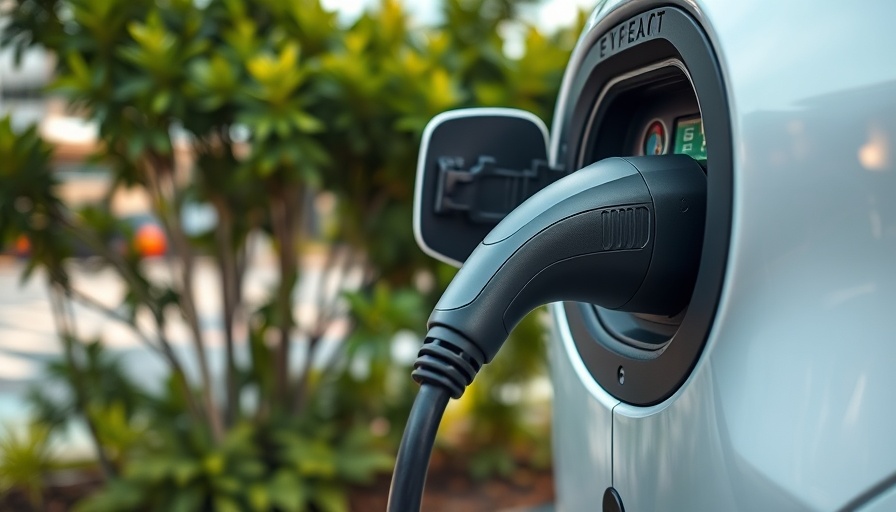
Winter Park's New Initiative for EV Charging Stations
As the federal landscape for clean energy rapidly shifts, Winter Park, Florida, is making a timely investment in electric vehicle (EV) infrastructure. The city's newly installed seven rapid electric vehicle chargers mark a significant upgrade over the single slow charger previously available, providing the community with much-needed modern charging capabilities. These rapid chargers can recharge an electric vehicle within 20 minutes to an hour, making it highly convenient for residents and visitors alike.
Enhancing Mobility and Sustainability
Located adjacent to the SunRail station on West Morse Boulevard, the new mobility hub aims to support both drivers and public transit users in Winter Park. Gloria Eby, the director of natural resources and sustainability, champions this initiative as a step toward building a "multimodal transportation hub" that caters to various modes of transit. Furthermore, plans to install additional chargers for electric scooters and bicycles highlight the city’s commitment to fostering an eco-friendly travel environment, despite some restrictions on e-scooters and e-bikes along Park Avenue.
A Partnership for Progress
The rapid EV chargers were donated by Optimus Energy Solutions, emphasizing a successful public-private partnership that exemplifies community cooperation. Ben Pauluhn, the company's president, stated that the streamlined process from contract signing to operational installation underscores the efficacy of collaboration in achieving common goals for environmental sustainability.
Challenges Ahead as Incentives Fade
However, the establishment of these charging stations arrives at a critical juncture. As incentives for clean energy face expiration under President Trump's recent tax-spending package, cities like Winter Park must forge ahead with local improvements to maintain momentum toward sustainable energy. Mayor Sheila DeCiccio emphasizes the chargers' strategic placement, catering to visitors who may only spend a few hours in the area, allowing them to charge their vehicles during short stops. This investment reflects a growing recognition of the necessity for robust energy solutions in community planning.
Conclusion
Winter Park is setting an example of how local initiatives can lead to significant advancements in sustainable transportation. As the nation grapples with the impending loss of federal incentives, communities must adapt and innovate to keep the momentum for clean energy alive.
 Add Row
Add Row  Add
Add 



Write A Comment